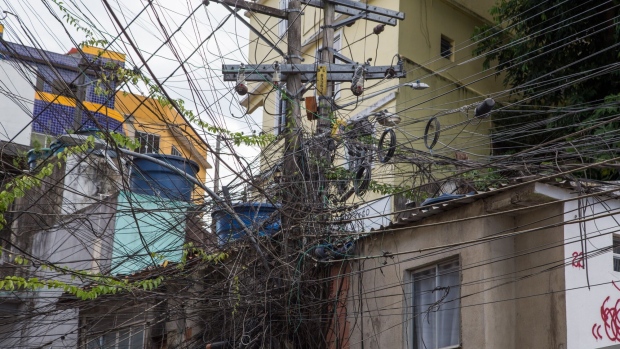Jun 6, 2023
Veteran Distressed Investor to Vote for Rio Utility’s Bankruptcy
, Bloomberg News

(Bloomberg) -- Investor Nelson Tanure said he’ll vote in favor of the bankruptcy process for Rio de Janeiro’s power company Light SA at a Wednesday shareholders’ meeting, making the approval of the measure practically certain.
“We are looking for a completely uniform direction for the company,” Tanure said in an interview.
Tanure, a veteran investor in distressed assets in Brazil, holds a 21.8% stake in Light through the fund WNT Gestora de Recursos Ltda, after starting to buy shares when they went declined this year. He now tops Ronaldo Cezar Coelho, who has about 20%, and billionaire Carlos Sicupira, with about a 10% stake. Light’s shares are up 11.66% this year.
The holding company filed for bankruptcy protection from creditors on May 12 after warning that it was struggling to pay its 11 billion reais ($2.24 billion) in debts without government authorization to increase tariffs. The decision prompted protests from many local bondholders, which promised a court fight.
“They filed using the holding company, which has no debt at all, because of a distressed situation in the distribution subsidiary, which can’t use a bankruptcy filling process according to Brazilian law,” Claudio Brandao Silveira, founding partner at BeeCap, a boutique advisory firm representing a group of bondholders with about 5 billion reais in Light debt, said at the time.
Read more: Rio’s Light Scaring Creditors to Stiff Them, Adviser Says
The bankruptcy protection process was approved by a court in Rio on May 15. On the same day, the company said that in order to raise cash it was considering selling off its generation business, according to it Chief Executive Officer Octavio Lopes. In a webcast, he added that this sale was “not the best solution.”
Earlier this month, competitor Equatorial Energia SA said it was evaluating some of Light’s assets.
Light is facing the dual challenges of negotiating with investors under bankruptcy protection while convincing the government to renew its concession under more favorable terms. The company also needs to continue investing in operations during the 180-day review period, or else the government will be more likely to cancel the concession, said Lucas Rios, an analyst at Fitch Ratings.
Even if Light gets authorization to charge higher tariffs, there’s no guarantee that this will lift profits because it could encourage paying clients to start stealing electricity, said Rios.
“Nothing is simple here. The tariff is already very high,” said Rios. “Some regular customers could become irregular the day after.”
©2023 Bloomberg L.P.






